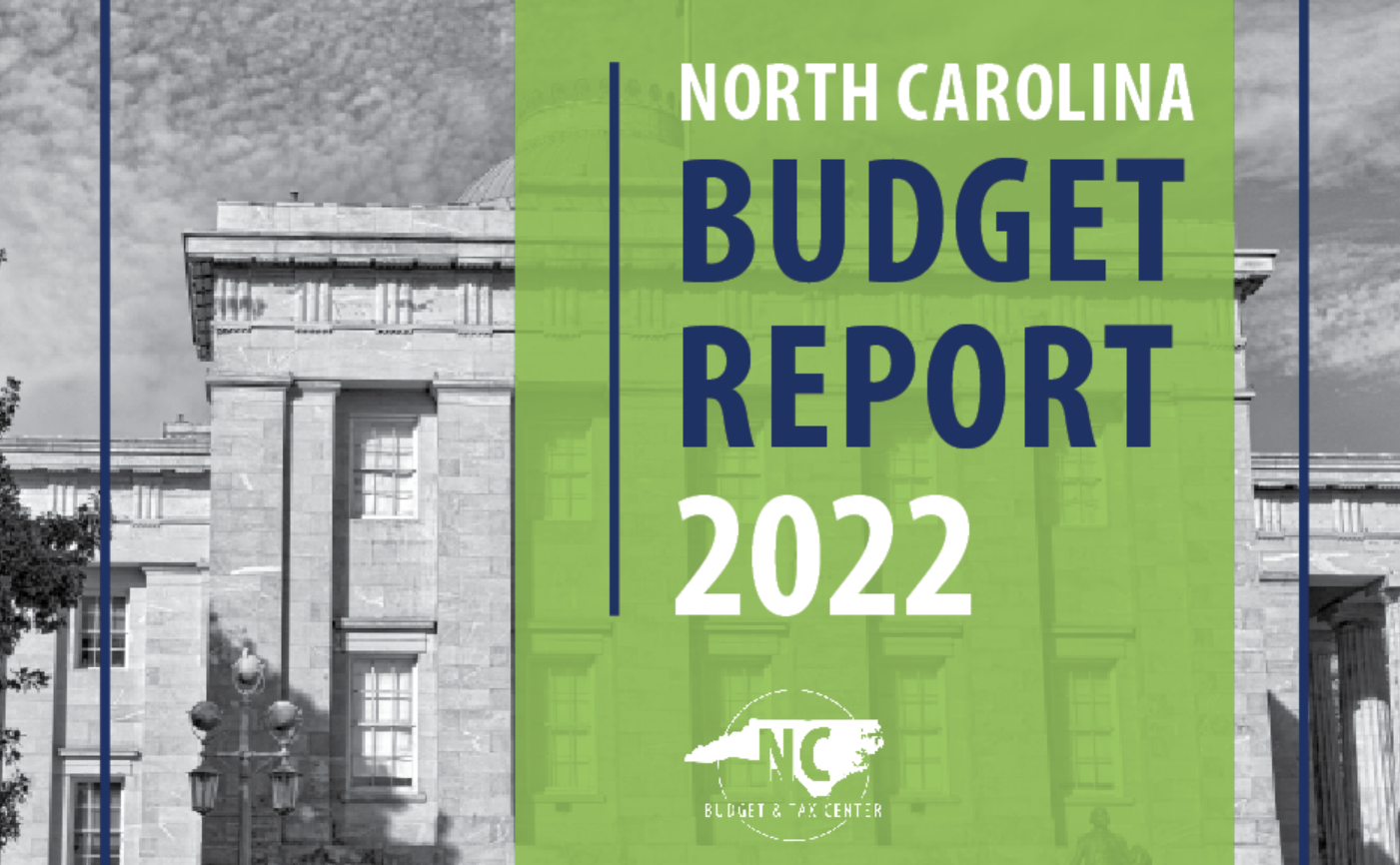
Executive Summary: NC Budget Report 2022
The 2021-2023 state budget enacted by the North Carolina General Assembly (NCGA) and Governor represents the first biennial state budget enacted since 2017. Yet despite this small accomplishment, North Carolina will be worse off because of the choices reflected in the budget. This report highlights how the budget:
- advances the interests of businesses and the wealthy ahead of everyday North Carolinians
- brings North Carolina to anew spending low
- sets aside billions of dollars in state reserves while needs today go unmet
Tax cuts in the budget will harm our state’s ability to meet current and future needs. The budget included major changes to the tax code, including the elimination of the corporate income tax and reduction of the personal income tax rate, that will take effect over the course of the next decade. Once fully implemented, the tax cuts will provide an average annual tax cut of $47,000 to the wealthiest 1% in the state, compared to an annual tax cut of less than $700 for the bottom 80% of the income distribution.
These tax cuts will result in approximately $8 billion less in revenue every year – representing more than one-quarter of the state’s current revenue. Rather than putting these dollars in the pockets of the wealthiest North Carolinians and out-of-state corporations, they could instead be put toward funding public education, child-care assistance, housing assistance, and more.
The budget included some provisions, fell short on others, and left out major policies that have long been neglected. Here’s a summary of what made it into the budget and what didn’t.
| Great progress | The budget included an important provision to extend postpartum Medicaid coverage to 12 months from the current 60 days. |
| Not enough | Some funding, but not enough, was provided for early education, environmental-related spending, election infrastructure, housing investments, and re-entry supports for North Carolinians leaving prison. |
| Left out | Left out from the budget altogether were Medicaid expansion; funding for a sound, basic education for every child in North Carolina; and a state Earned Income Tax Credit (EITC) that would provide support to low-income taxpayers. |
In addition to deciding how to allocate the state’s General Funds – funds generated from the state’s tax code – the NCGA also allocated $5.4 billion in flexible funds from the federal American Rescue Plan. Most of these funds were allocated for water and wastewater infrastructure, business supports, and broadband infrastructure. However, since the federal guidelines say that funds don’t need to be allocated until the end of 2024 and spent by 2026, it’s likely that the NCGA will revisit their prior decisions over the coming months and years
Finally, the report highlights some examples of what the budget means for three communities in North Carolina - the Black and African American community, women, and workers – on issues such as public education, health care, economic supports, and public worker salaries.
While budgets are moral documents, choices reflected in the budget are simultaneously a reflection of lawmakers’ values and political will. The choice to invest in North Carolina’s communities and public services that benefit everyone will always be available to lawmakers who choose to put people first.


